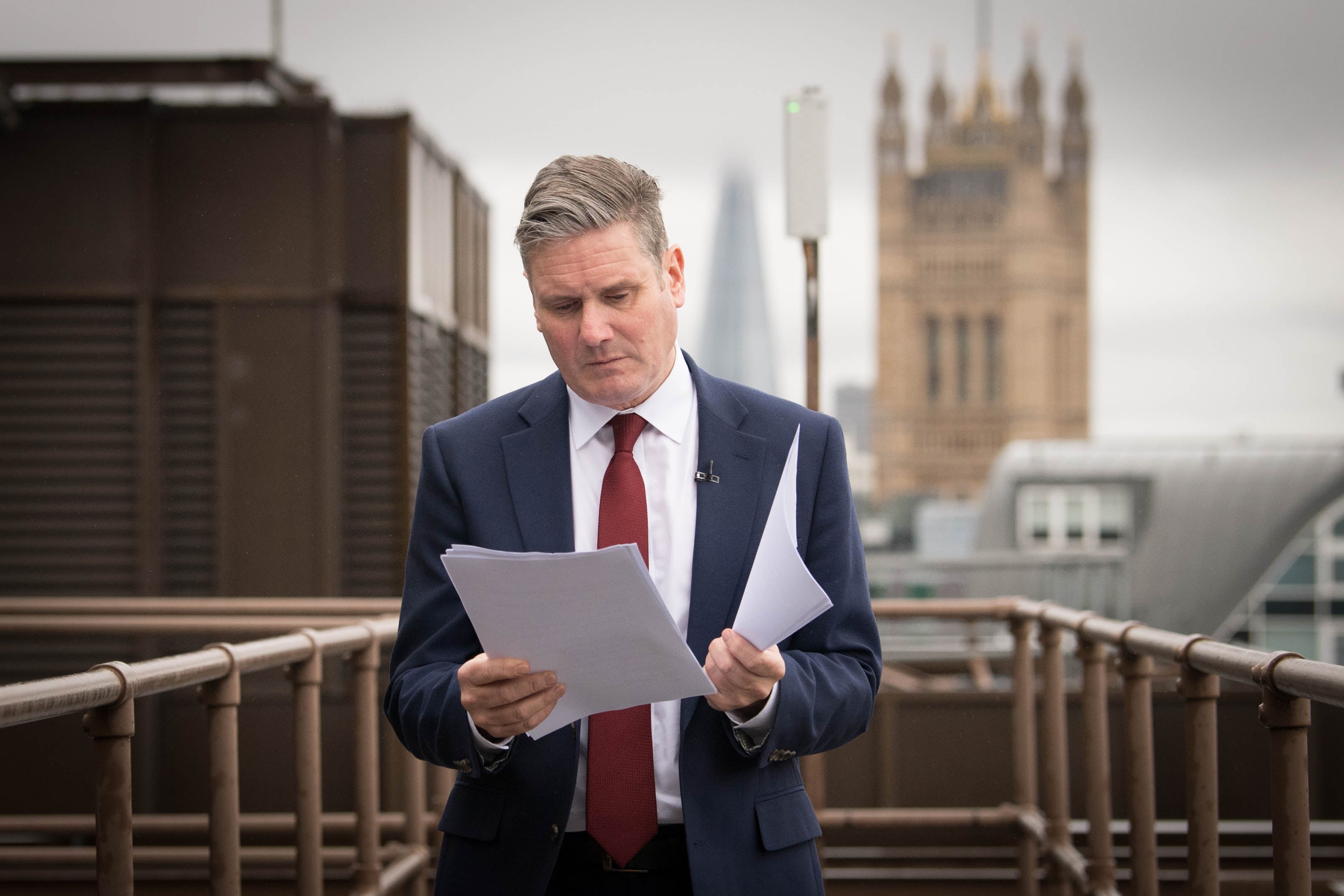Labour calls Brexit trade deal ‘a platform to build on’ as party braces for revolt over decision to back it
Rachel Reeves insists Boris Johnson will still ‘own it’ - even if unhappy Labour MPs hold their noses and back his agreement

Your support helps us to tell the story
From reproductive rights to climate change to Big Tech, The Independent is on the ground when the story is developing. Whether it's investigating the financials of Elon Musk's pro-Trump PAC or producing our latest documentary, 'The A Word', which shines a light on the American women fighting for reproductive rights, we know how important it is to parse out the facts from the messaging.
At such a critical moment in US history, we need reporters on the ground. Your donation allows us to keep sending journalists to speak to both sides of the story.
The Independent is trusted by Americans across the entire political spectrum. And unlike many other quality news outlets, we choose not to lock Americans out of our reporting and analysis with paywalls. We believe quality journalism should be available to everyone, paid for by those who can afford it.
Your support makes all the difference.Labour has described the Brexit trade deal as “a platform to build on”, as the party braces for a revolt over the decision to vote in favour of it this week.
In an article for The Independent, Rachel Reeves argues that the agreement need not be a “ceiling of ambition”, insisting that Labour can improve upon it if it wins the 2024 general election.
The shadow Cabinet Office minister also tries to reassure unhappy Labour MPs that Boris Johnson will still “own" the deal, even if they hold their noses and back it on Wednesday.
“We are clear what we mean by that: the next Labour government will seek to build on this deal, not cheerlead for it,” she writes.
But Neil Coyle, the Labour MP for Bermondsey and Old Southwark, told The Independent he would abstain, leaving the prime minister to “savour” his damaging folly in the future.
“Johnson’s Tories have a government majority of 80. They don’t need any Labour votes to push their downgrade deal through parliament,” he said.
Keir Starmer sparked anger by ordering his MPs to back the Christmas Eve agreement on the grounds that the only alternative is the disaster of a no-deal departure.
There has been criticism that the decision was announced prematurely, before the vast 1,255-page document was even released. Even now, a Bill is yet to be published.
In her article, Ms Reeves attacks the “historic mistake” of leaving the services sector – including accountancy, the arts, finance, media, law and architecture – high and dry.
“Our qualifications won’t be recognised in Europe, making it harder for British businesses and individuals to win contracts abroad,” she writes.
But, she says, “only two narrow paths” are left: “Down one is Johnson’s limited and unimpressive deal with the EU.
“Down the other is the chaos of ending the transition period with no deal, which would mean substantial tariffs and barriers to trade.
“Neither one is ideal. Neither one will deliver for jobs, business or the economy. But a bad deal is better than no deal at all.
“A Labour government would inherit this deal in 2024. It may be the Tories’ ceiling of ambition, but for Labour it must be a foundation on which to build upon.”
But Mr Coyle added: “British people and businesses will be worse off under Johnson’s mess and it will take decades to fix the problems it leaves unresolved.”
And a second rebel, Exeter MP Ben Bradshaw, has criticised the apparent motivation to back the deal because it will “help us win back the so-called ‘red wall’ seats”.
“This is to fight the last battle, rather than the next one and where we will be at the next election. It buys into the false Tory and Lexiteer [left-wing Brexit supporter] narrative of why we lost so badly a year ago,” he wrote on his website.
At least a dozen Labour MPs are expected to abstain – with Clive Lewis among a smaller number considering a vote against – but Labour’s backing ensures the agreement will pass, in time for the transition period ending on New Year’s Eve.





Join our commenting forum
Join thought-provoking conversations, follow other Independent readers and see their replies
0Comments